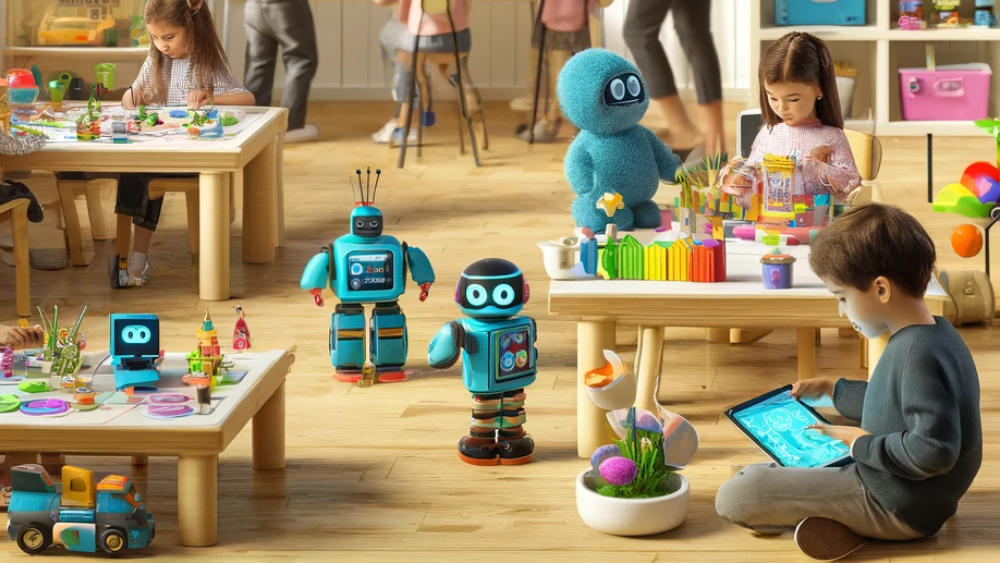The use of artificial intelligence (AI) in kindergartens is a growing field that offers numerous opportunities for personalized learning, innovative teaching methods, and early interventions. Worldwide, there are various projects that demonstrate how AI is successfully applied in early childhood education.
Personalized Teaching Methods
AI technology enables early childhood educators to provide personalized teaching and learning experiences tailored to the individual needs and abilities of children. By analyzing data and using machine learning algorithms, AI systems can assess student performance, identify individual strengths and weaknesses, and suggest targeted interventions. This personalized approach allows teachers to adapt lessons and achieve optimal learning outcomes (Kindergarten Blog).
Innovative Teaching Tools and Resources
AI-powered educational tools open up exciting possibilities for innovative teaching and learning experiences. Smart toys equipped with AI capabilities adapt to children’s actions and reactions, encouraging active participation and critical thinking. These tools enrich the classroom and make learning more interactive and engaging for both teachers and children (Kindergarten Blog, MIT Media Lab).
Early Intervention and Support for Special Needs
One of the greatest strengths of AI in early childhood education is its ability to detect early signs of developmental delays or learning difficulties and provide appropriate support measures. AI systems can analyze large datasets and recognize patterns that indicate potential problems. This allows educators to intervene early and create personalized learning plans to meet the unique needs of children and maximize their learning potential (Kindergarten Blog).
Projects Worldwide
1. MIT Media Lab:
At MIT Media Lab, research is being conducted on how children interact with smart toys and AI-powered devices. A project examined how children aged four to ten play with various AI agents like Amazon Alexa, Google Home, and the robot Cozmo. The study showed that children attribute emotions and personalities to these devices, and such interactions can spark their interest in programming and designing AI toys (MIT Media Lab).
2. Cambridge Public Schools:
In the public schools of Cambridge, Massachusetts, workshops were organized where children learned to design and program their own smart toys. These workshops aimed to foster creativity and technical understanding by teaching children the basics of programming and developing their own AI-driven projects (MIT Media Lab).
3. Kindergartens International:
In an initiative by Kindergartens International, AI technologies are used to develop customized teaching methods that benefit both teachers and children. These projects utilize data analysis and machine learning to monitor children’s learning progress and develop personalized educational strategies (Kindergarten Blog).
Challenges and Outlook
While AI offers significant benefits in early childhood education, it is important to emphasize that these technologies cannot replace human interaction and educators’ expertise. However, the combination of AI and human expertise creates a powerful synergy that enriches the educational experience of children and promotes their holistic development (Kindergarten Blog).

